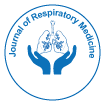Risk of thrombo-embolism in patients receiving anti-psychotic treatment
Received: 28-Aug-2023 / Manuscript No. JRM-23-115104 / Editor assigned: 31-Aug-2023 / PreQC No. JRM-23-115104 / Reviewed: 14-Sep-2023 / QC No. JRM-23-115104 / Revised: 20-Sep-2023 / Manuscript No. JRM-23-115104 / Published Date: 27-Sep-2023 DOI: 10.4172/jrm.1000176 QI No. / JRM-23-115104
Introduction
Pulmonary thromboembolism was considered as the result of clinical evaluation. There were no risk factors such as age, smoking, trauma, immobilization, surgery, heart disease, and genetic risk factors to explain pulmonary embolism. In this case we see that the pulmonary embolism was associated with quetiapine. We should be more careful about pulmonary thromboembolism [1 ]. Venous Thromboembolism has been associated with risk factors such as smoking, trauma, immobilization, surgery, pregnancy, use of combined oral contraceptives, malignant disorders, and certain cardiac and haemostatic disorders, including factor Leiden mutation. In our case there was no family history of hypercoagulable state, nor any past surgical or chronic systemic medical history. He did not have any risk factors for pulmonary embolism. We strongly suspected that quetiapine might have contributed to his pulmonary thromboembolısm on the basis of published reports [2]. The biological mechanism explaining the relation between antipsychotic drugs and venous thromboembolism is unknown. Many biological mechanisms have been proposed to explain this relationship until this time. Previous studies in the literature have shown that antipsychotics increase platelet aggregation, especially due to the effects on 5-hydroxy tryptamine [3]. A second possible explanation is about anti-cardiolipin antibodies. Anti-cardiolipin antibodies are associated with increased risk of venous or arterial thrombosis and it has been observed that anti-cardiolipin antibodies are increased in patients using chlorpromazine [4]. At the same time, no relationship has been found between venous thromboembolism and antipsychotic drug use in those in whom anti-cardiolipin antibodies were detected. Patients treated with low-potency antipsychotic drugs have the side effect sedation much more often. A third hypothesis is that venous stasis can be aggravated by sedation and this can increase the risk of thrombosis. Also it is thought that putting on weight, high body mass index, and sedative life style developing with the use of these drugs could be the risk factors [5 ]. Pulmonary thromboembolism is often misdiagnosed as sudden cardiac death. Only in necropsy in psychiatric patients of idiopathic, fatal pulmonary embolism were diagnosed [6]. There is an association between sudden cardiac death and antipsychotic drug use which has been described by the spontaneous reports. However, evidence to explain the causal relationship between antipsychotic drugs and venous thromboembolism is still insufficient [7 ]. Venous Thromboembolism, which includes pulmonary embolism and deepvein thrombosis, is also a potentially fatal adverse drug reaction and little attention has been focused on this topic. Atypical antipsychotics are associated with an increased risk of pulmonary embolism [8]. In this case we want to show pulmonary thromboembolism associated with quetiapine. An old man with bipolar disorder, presented to the Emergency Department complaining of epileptic seizure, general weakness, mild fever, and dizziness. Physicians and individuals must be aware of this potentially fatal, though treatable, adverse drug reaction when starting treatment, especially in patients who have other risk factors for venous thromboembolism [9 ]. Venous Thromboembolism, which includes pulmonary embolism and deep-vein thrombosis, is also a potentially fatal adverse drug reaction and little attention has been focused on this topic. Several studies have identified age, immobilization, obesity, smoking status, allergy, autoimmune disease, heart failure, lower leg fracture, surgery, diabetes, pregnancy, antipsychotics, physical restraint, and cancer as acquired risk factors for venous thromboembolism [10 ].
Acknowledgement
None
Conflict of Interest
None
References
- Gergianaki I, Bortoluzzi A, Bertsias G (2018) . Best Pract Res Clin Rheumatol EU 32:188-205.
- Cunningham AA, Daszak P, Wood JLN (2017) Phil Trans UK 372:1-8.
- Sue LJ (2004) . Curr Opin Infect Dis MN 17:81-90.
- Pisarski K (2019) . Trop Med Infect Dis EU 4:1-44.
- Kahn LH (2006) . Emerg Infect Dis US 12:556-561.
- Slifko TR, Smith HV, Rose JB (2000) Emerging parasite zoonosis associated with water and food. Int J Parasitol EU 30:1379-1393.
- Bidaisee S, Macpherson CNL (2014) . J Parasitol 2014:1-8.
- Cooper GS, Parks CG (2004) . Curr Rheumatol Rep EU 6:367-374.
- Parks CG, Santos ASE, Barbhaiya M, Costenbader KH (2017) . Best Pract Res Clin Rheumatol EU 31:306-320.
- Barbhaiya M, Costenbader KH (2016) . Curr Opin Rheumatol US 28:497-505.
, ,
, ,
, ,
, ,
, ,
, ,
, ,
, ,
, ,
, ,
Citation: Yuan S (2023) Risk of Thromboembolism in Patients ReceivingAntipsychotic Treatment. J Respir Med 5: 176. DOI: 10.4172/jrm.1000176
Copyright: © 2023 Yuan S. This is an open-access article distributed under theterms of the Creative Commons Attribution License, which permits unrestricteduse, distribution, and reproduction in any medium, provided the original author andsource are credited.
Share This Article
Recommended Journals
黑料网 Journals
Article Tools
Article Usage
- Total views: 289
- [From(publication date): 0-2023 - Nov 25, 2024]
- Breakdown by view type
- HTML page views: 234
- PDF downloads: 55
